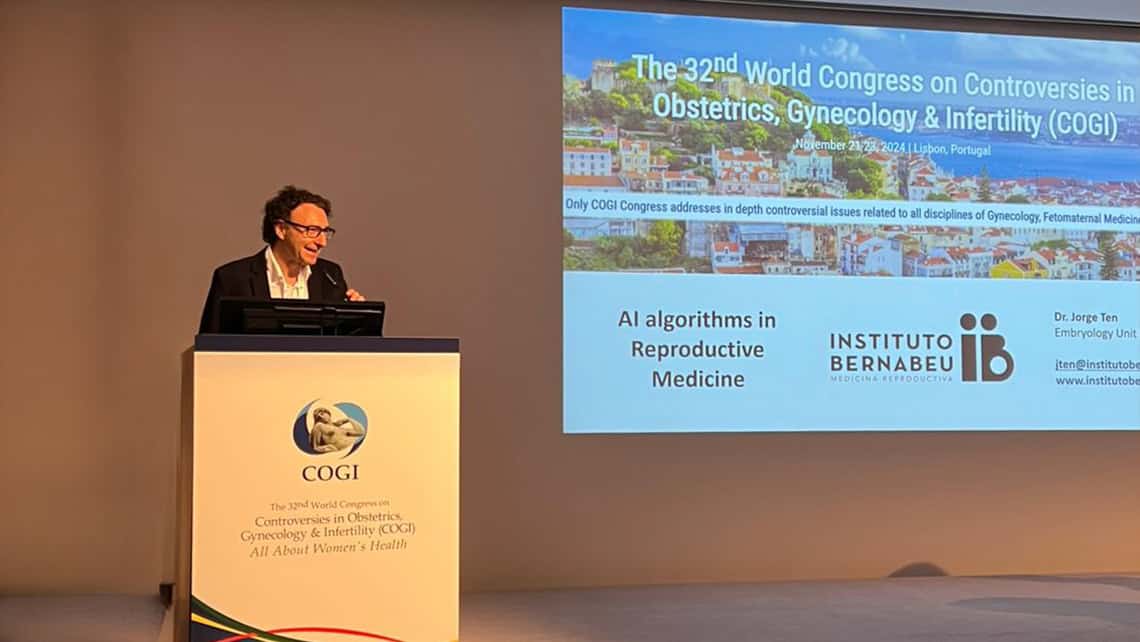Dr Jorge Ten addresses the impact of artificial intelligence in reproductive medicine in Lisbon and Beijing
27-11-2024

The director of the Instituto Bernabeu Group Embryology Unit gave two international presentations in which he highlighted the results of Instituto Bernabeu.
Dr Jorge Ten, director of the Embryology Unit at Instituto Bernabeu and member of the Artificial Intelligence Specialised Unit, has presented his vision on the role of artificial intelligence (AI) in reproductive medicine at two international conferences in Lisbon and Beijing. In both presentations, he highlighted Instituto Bernabeu’s own results, placing special emphasis on the relevance of genetic variants to personalise ovarian stimulation and on key kinetic parameters of the embryo, such as the time to reach the blastocyst stage, and the onset of cavitation and hatching.
The Embryology specialist gave the first lecture on 21 November in Lisbon (Portugal), during the 32nd World Congress on Controversies in Obstetrics, Gynaecology and Fertility (COGI). The second, on 27 November, was a webinar for the Peking University Third Hospital Reproductive Center in Beijing (China).
He used a visual traffic light system to assess the applicability of these tools in routine laboratory procedures. Currently, all indicators, except the one related to embryo selection, remain red due to the lack of prospective randomised studies to support their widespread use. Embryo selection, although promising, is in an intermediate state, marked as amber, indicating the need for further research before its final implementation.
In addition, Dr Ten highlighted the potential of AI to optimise traceability processes and quality control in reproductive medicine laboratories. In his conclusions, the director of the Embryology Unit at Instituto Bernabeu, outlined four main advantages of AI in reproductive medicine: the elimination of subjectivity, the inclusion of clinical and laboratory parameters in the algorithms, its value as a support tool for decision-making and the improvement of quality and efficiency; without forgetting that AI in reproductive medicine also has limitations such as complex integrations or legal regulations.
